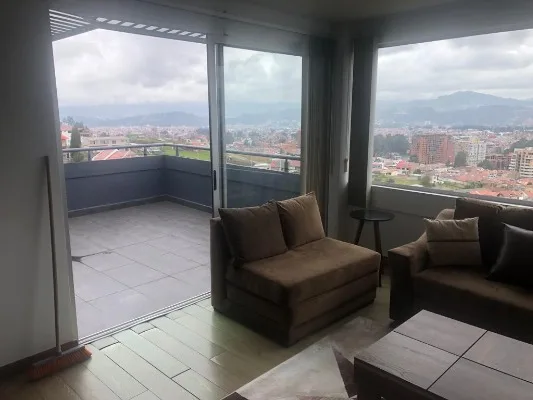Cali, Colombia suffers shortages of food and fuel as protests and roadblocks cut off critical supplies

One of dozens of roadblocks in and around Cali, Colombia, cutting off desperately needed supplies.
Residents of the Colombian city of Cali, the epicenter of protests against the government of Ivan Duque, are struggling under the weight of demonstrators’ road blockades, which have tripled some foods prices and made gasoline scarce.
The city, the country’s third largest and known for its love of salsa dancing, has had more confirmed deaths than any other during the demonstrations, which began in late April, as well as some looting.
Residents say it is urgent agreements be reached between protesters and the government so more food and fuel shipments can enter the city and to end the protests – the longest and most violent demonstrations in Colombia’s recent history. “We are living a critical moment,” said Andres Bolanos, 28, as he waited in a long line to fill the tank of his motorcycle. “The two sides need to make an agreement so there’s a good humanitarian corridor.”

University students gather Friday for daily confrontations with police.
Some gasoline lines stretched 2 kilometers (1.25 miles), while other gas stations, not able to get in shipments, were shuttered. Cars are limited to 4 gallons (15 liters) and motorcycles to 2, and owners can fill up only on certain days according to license plate number.
Those supermarkets that are not closed have conspicuously empty shelves, even as prices rise for remaining food products. “The impact has been total scarcity and price rises,” said grocery store owner Diana Falla, 36. “We got what we could and brought it in ourselves because sometimes purveyors don’t arrive.”
The cost of box of 30 eggs was up to 18,000 pesos, about $4.80, from a previous price of 12,000 pesos, and a pound of potatoes has tripled in price, to the equivalent of $0.80. Falla said she has stopped selling many vegetables and fruits because supplier prices are just too high. “You can’t get plantain, potato, chicken,” said 72-year-old housewife Clara Grijalba, as she stood outside Falla’s shop. “Please lift (the blockades), we can’t go on like this.”
Protesters, who originally called marches against a now-canceled tax plan, have expanded demands to include a basic income, an end to police violence and education and jobs for young people, among other things.
The death toll from protests is disputed. The human rights ombudsman is investigating 41 civilian deaths in Cali, while the attorney general’s office has confirmed only 14 but admits it has incomplete data.
At Puerto Resistencia, a working class area that has become a symbol of protests, demonstrators asked residents for calm. “They don’t have food, they have shortages, but lots of people live with daily shortages,” said Elizabeth Serna, 40, leader of a blockade manned mostly by young people.
Blockades will continue until there is a deal with the government, she said. “They must have patience because we’ll win this fight for everyone.”
____________________
Credit: Reuters
















